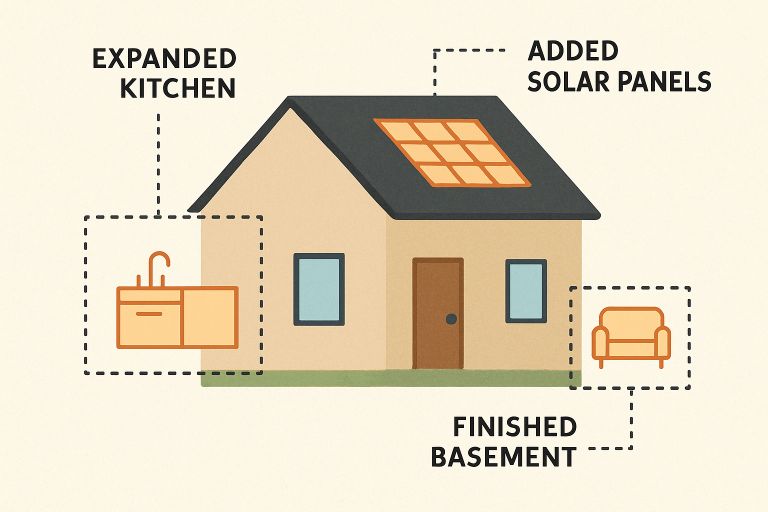Table of Contents
- Introduction to Accelerated Depression Treatment
- The Need for Faster Depression Solutions
- How Accelerated Depression Treatment Works
- Benefits of Accelerated Approaches
- Comparing Traditional and Modern Treatments
- Potential Challenges and Considerations
- Real-Life Success Stories
- Future of Mental Health with Accelerated Treatments
Introduction to Accelerated Depression Treatment
In recent years, there has been a significant transformation in how mental health practitioners approach the treatment of depression, emphasizing the need for quick-response solutions. This marked shift has given rise to accelerated depression treatments and innovative methodologies that prioritize swift relief over prolonged therapeutic processes. Central to this movement, accelerated TMS therapy for anxiety and depression is gaining ground, presenting as a viable alternative for many who have found traditional treatments lacking. These treatments attempt to enhance the quality of life in a fraction of the time, providing a ray of hope for people caught up in the cycle of chronic depression.
The Need for Faster Depression Solutions
Globally, depression affects over 264 million adults, making it one of the most pressing public health challenges of our time. Its widespread impact extends beyond individual suffering, influencing families, workplace productivity, and healthcare systems. Traditional treatment methods (primarily involving antidepressant medications and psychotherapy) can take weeks or even months to yield significant improvements. During this waiting period, individuals may experience worsening symptoms, increased risk of self-harm, and the development of comorbid conditions such as generalized anxiety disorder or substance use.
In response to this critical lag in relief, mental health professionals and researchers emphasize exploring and implementing more rapid-acting interventions. These include novel therapies such as transcranial magnetic stimulation (TMS), ketamine-based treatments, and digital therapeutics that offer more immediate symptom management. Additionally, integrative approaches combining lifestyle modifications (such as exercise, nutrition, and mindfulness) with clinical care are gaining recognition for their potential to complement conventional methods.
The need for faster, more effective treatments drives innovation and reshapes mental healthcare paradigms. For many individuals with limited success with standard approaches, these accelerated treatment pathways represent a promising alternative and a vital opportunity for renewed well-being and long-term recovery.
How Accelerated Depression Treatment Works
Accelerated depression treatment methods are transforming the mental health landscape by providing speedier relief to people who do not react well to established therapy. Designed to meet the needs of modern patients who commonly face time constraints, severe symptoms, or treatment-resistant depression, these treatments combine cutting-edge, science-backed technology and procedures to give results faster than standard antidepressants or talk therapy.
Transcranial Magnetic Stimulation (TMS) is a well-known and extensively researched therapy. TMS is a non-invasive method that employs magnetic fields to stimulate specific brain parts of mood control, notably the prefrontal cortex. By targeting underactive neural pathways involved in depression, TMS encourages the brain to rewire itself, improving mood and emotional regulation without the systemic side effects associated with medications. Treatments typically last less than an hour and are administered over several weeks, with many patients experiencing improvements within the first few sessions.
Other accelerated treatment options include ketamine infusion therapy, which acts on glutamate receptors in the brain to create rapid antidepressant effects, sometimes within hours. Similarly, electroconvulsive therapy (ECT) and newer neurofeedback techniques are being refined to enhance their efficacy while minimizing discomfort and recovery time.
These forward-thinking interventions represent a shift in how mental health professionals approach depressive disorders. Rather than relying solely on long-term pharmacological regimens or delayed therapeutic outcomes, accelerated treatments provide quicker symptom relief, helping patients regain functionality and improve their quality of life sooner. As ongoing research continues to validate and optimize these methods, they are poised to become integral components in the broader toolkit for managing complex and persistent forms of depression.
Benefits of Accelerated Approaches
The appeal of accelerated treatments for depression goes far beyond their ability to provide fast symptom relief—they also offer numerous practical, psychological, and economic advantages that make them particularly suited for today’s healthcare landscape. One of the most significant benefits is the reduction in overall treatment duration. Traditional therapies, such as antidepressant medications or weekly psychotherapy, may take months to show results, while accelerated treatments can deliver noticeable improvements in days or weeks. This condensed timeline translates to fewer clinic visits, reduced long-term therapy costs, and a quicker return to daily routines, work, and social engagements.
Economically, this efficiency can make a substantial difference. Fewer sessions mean lower cumulative expenses for patients and healthcare systems, particularly those without comprehensive insurance coverage. Additionally, these therapies reduce indirect financial burdens often associated with prolonged treatment plans by minimizing time away from work or caregiving responsibilities.
From a lifestyle standpoint, accelerated treatments align well with modern demands. In a world where people are increasingly seeking solutions that are not only effective but also time-conscious, these interventions cater to individuals who need mental health support without lengthy disruptions to their lives. Transcranial Magnetic Stimulation (TMS), ketamine infusions, and expedited cognitive-behavioral procedures are intended to fit into hectic schedules with minimum downtime or recuperation.
Moreover, many of these approaches incorporate personalized medicine principles, adjusting treatment intensity, frequency, or type based on the patient’s specific symptoms, history, and biological markers. Individualization improves treatment success, lowers the risk of side effects, and promotes long-term mental health maintenance. Patients often feel more empowered and involved in their care, which can lead to improved engagement and sustained well-being.
In sum, the advantages of accelerated treatments extend well beyond their speed. By combining convenience, cost-effectiveness, and tailored care, they represent a transformative shift in mental health treatment, offering real hope for those seeking efficient, personalized paths to recovery.
Comparing Traditional and Modern Treatments
Differences between traditional and modern treatment approaches are stark and significant. Conventional methodologies, such as selective serotonin reuptake inhibitors (SSRIs) or psychodynamic therapy, demand extended periods before observable effects manifest. Contrastingly, modern accelerated treatments, particularly therapies like TMS, offer rapid improvement, with many patients experiencing alleviated symptoms within weeks. According to a recent study on mental health treatment, these contemporary interventions often yield a more satisfactory patient experience because of their efficiency and immediate impact, offering new hope to those who have struggled with traditional therapies and empowering them to take control of their recovery.
Potential Challenges and Considerations
Despite the optimistic prospects of accelerated treatments, they are not without challenges. Although typically minimal, side effects can occur and should be weighed against expected benefits. Furthermore, accessibility often varies, with insurance coverage sometimes being a limiting factor. Patients and healthcare providers must critically evaluate these treatments’ viability alongside traditional options. As noted by experts on modern health trends, ongoing debates about long-term efficacy underline patients’ need to make informed decisions, ideally with the guidance of their healthcare providers, to navigate this evolving landscape.
Future of Mental Health with Accelerated Treatments
The ongoing development of accelerated treatments heralds an exciting era for mental health care. As technology advances, these treatments are expected to become more refined, accessible, and possibly integral to standard care practices. With continuous research, the potential for a broader scope of applicability, including a wider range of mental health conditions, seems imminent. The future of mental health care, underpinned by rapid recovery and personalized treatment plans, promises a shift towards more inclusive, effective, and empathetic approaches, bringing optimism and tangible solutions to millions and exciting mental health professionals about the future of their field.







